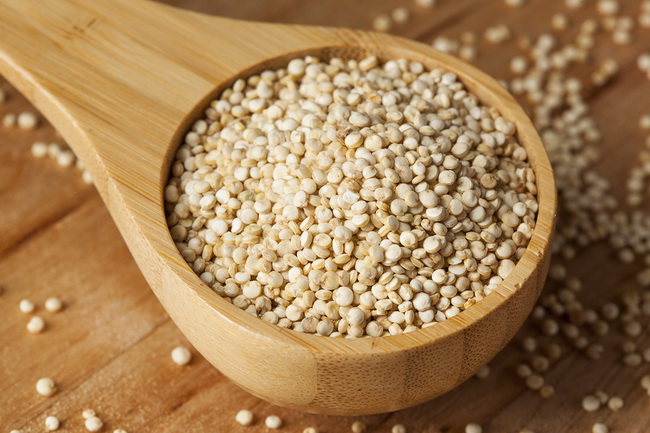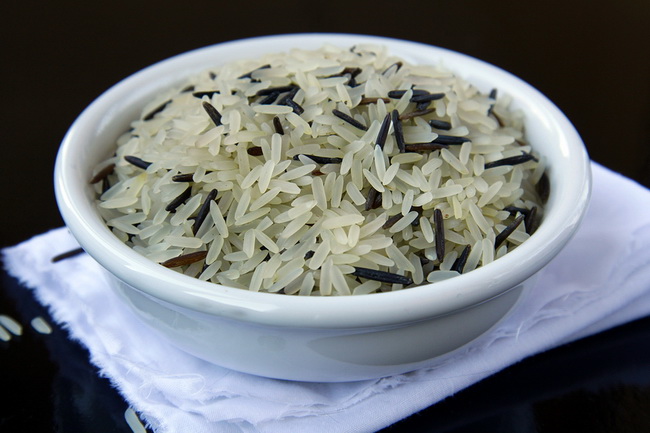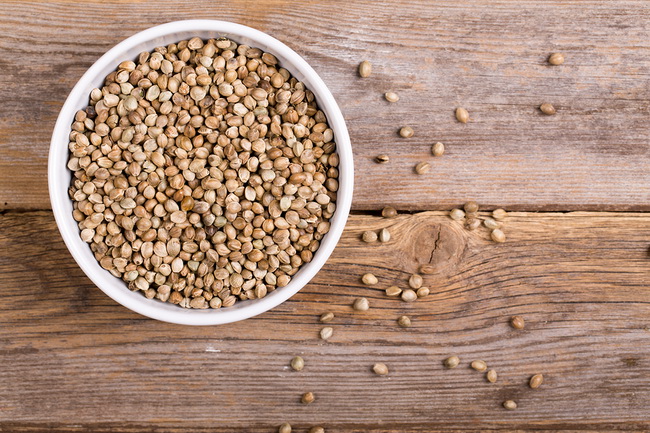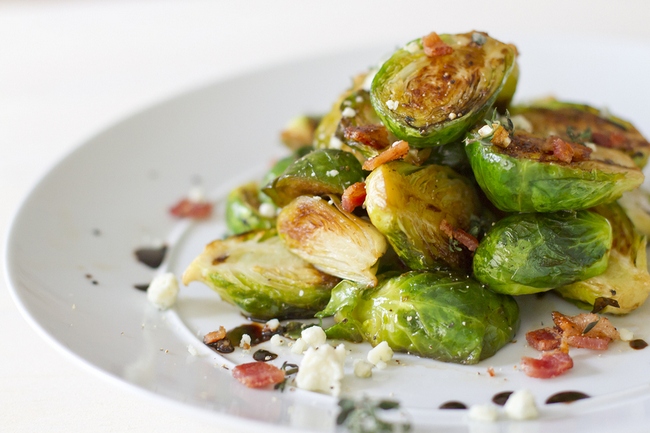- Make It Yourself Lavender Heart-Shaped Bath Bombs!
- 20 Things You Never Knew About “Down There”
- 12 Best Foods For Those Suffering From Arthritis Pain
- 12 Personal Hygiene Mistakes Almost Everyone Makes (Mom Never Told You About #4!)
- 15 Medicinal Plants And Herbs From The Cherokee People
- 12 Mind-Blowing Benefits Of Drinking Coconut Water During Pregnancy
- 12 Outstanding Winter Foods That Won’t Fatten You Up Like A Christmas Turkey
Calling All Vegans: We Have a List of 12 Powerful Sources of Protein

Photo credit: bigstock.com
As word gets out about factory farming and the horrible ways in which animals are kept and slaughtered, more and more people turn to a vegan diet or at least look for alternate sources of protein.
The USD recommends that adults should consume at least 0.37 grams of protein for every pound of body weight. That means if you are a male weighing about 225 pounds, you need about 83 grams of protein every single day. That is an awful lot of protein if you don’t plan on getting it from meat or eggs.
This is your lucky day, however! We have a list of plant based proteins that will fit the bill! Even if you don’t want or plan to go completely vegan, eating a mostly plant based diet has been linked in numerous studies to a longer, healthier life. To top it all off, you can save yourself quite a bit of money by substituting these plant based proteins for meat two or more times per week.
You might have heard the term “complete protein” when people are talking about plant based proteins. There are 20 different amino acids that can make up a protein. Nine of these are called “essential” amino acids because the body cannot make it on their own, so we must consume them. In order for a protein to be considered “complete, it must contain all 9 of these essential amino acids. However, the human body doesn’t need every single amino acid in every single meal that is consumed. As long as we get a sufficient amount of each amino acid during a 24 hour period, we will be fine. Eating a wide variety of plant based proteins will ensure that you get all the necessary amino acids at one time of the day or another.
If you are living a vegan lifestyle, or looking for ideas for that Meatless Monday program, we have a list with 12 great sources of plant based protein, so keep reading!
1. Quinoa
Perhaps the best of the best! With a huge 8 grams of protein in just one cup of cooked quinoa, this is really one terrific source of protein. In fact, NASA has high hopes that they can grow it on space flights to feed astronauts! Although quinoa looks very much like couscous, it has a great deal more nutritional value. Quinoa is loaded with iron, magnesium, manganese, fiber and, of course, protein. Find out more 10 reasons why you should be eating more quinoa.
2. Spinach and Broccoli
These have similar protein profiles so we are lumping them together. One cup of cooked broccoli has about 5.7 grams of protein while one cup of cooked spinach has about 5.35 grams. Both of these vegetables contain many other health benefits and you should find ways to include them in your diet several times per week. Meatless Mondays can be salad night with plenty of broccoli florets and baby spinach.
3. Pumpkin Seeds
These are a winning snack, especially if you are looking for extra sources of protein during the day. One ounce of pumpkin seeds has a whopping 9.35 grams of protein. You can add raw pumpkin seeds to just about anything including a smoothie, on top of baked goods, in salads, in vegetable dishes, or sprinkled over soups.
Continue to Page 2

Photo credit: bigstock.com
4. Buckwheat
Although the name gives the impression that this is a relative of wheat, but the truth is, buckwheat is related to rhubarb. The Japanese have turned this plant into some strange looking, but tasty noodles they call soba. However, most people simply grind the seeds into flour for some terrific gluten free foods. You can also cook the hulled kernels, which are often called “groats,” and eat it similar to the way you would oatmeal. Besides having 6 grams of protein per 1 cup of cooked kernels, buckwheat will control blood glucose levels and lower cholesterol levels as well as improve circulation.
5. Chia Seeds
With 4 grams of protein in two little tablespoons, it seems a shame to waste them on those little clay animals so they can grow “fur.” On top of the protein, chia seeds are the highest plant source of omega-3 and have more fiber than nuts or flax seeds. Chia seeds are also loaded with zinc, calcium, iron, and antioxidants. These little seeds are fun as when they are soaked in milk or water; they swell up and make a thick gel that is perfect for puddings, egg replacements, or for thickening up smoothies.
6. Rice and Beans
This is perhaps the cheapest, yet super high protein meals around. Beans are low in methionine but high in lysine. Rice is the opposite. So when you put them together, you are talking about one powerful protein that is almost on the same level as meat. Rice and beans is a super easy meal that can be put together fairly quickly and is the perfect after workout way to replace carbs and protein lost during exercise. One cup of cooked rice and beans will supply your body with 7 grams of protein.
Continue to Page 3

Photo credit: bigstock.com
7. Mycoprotein (Quorn)
This food was originally made to help fight global food shortages. You will see this sold under the name of “Quorn,” but the real name is mycoprotein. It’s not a GMO food, but rather this food is actually a type of fungus, something like mushrooms, that is molded into shapes and sold as a meat substitute. It sounds a bit strange, but how many mushrooms do you know that will look and taste something like meat? It is sometimes mixed with egg whites so that it will stick together, so some vegans might want to read labels and check for a brand that doesn’t use eggs. For many people, however, this is a taste treat worthy of those Meatless Mondays. Just a half cup of Quorn has an almost unbelievable 13 grams of a complete protein.
8. Soy
This popular bean is perhaps the go-to substitute for those who want to go meat-free but be aware that many of the soy products on the market today are GMO products. However, with a little searching, you can find soy products that are non-GMO. Remember that the harder the tofu is, the more protein it contains. This means that ½ cup of firm tofu has 10 grams of protein, and tempeh has 15 grams of protein. Soy is a complete protein as long as you avoid the processed varieties.
9. Hemp Seeds
Don’t raise an eyebrow; no one will get high from eating hemp seeds. Hemp seeds are a complete protein as they contain all 9 of the essential amino acids. 2 tablespoons will give you a huge 10 grams of protein, along with zinc, iron, calcium, and magnesium. This is a great way to get essential fatty acids, such as omega-3s, which are known to fight depression. Hemp seed milk is a delicious alternative to dairy milk and is terrific in a smoothie.
Continue to Page 4

Photo credit: bigstock.com
10. Brussels Sprouts, Fennel, Cauliflower, and Swiss Chard
All of these vegetables contain protein, just in lower amounts. However, when added to other foods, they can help to top up protein levels. Each one of these veggies will give you about 4 grams of protein per cup.
11. Potatoes
Even the lowly potato has protein to offer! Just one medium sized potato has about 4.35 grams of protein. You can make a potato soup, or potato casserole, or add potatoes to soups and casseroles. Potatoes are inexpensive, tasty, and a fairly good source of protein.
SEE ALSO: Top 10 Super Healthy Sources of Fiber
12. Lima Beans
With just short of 15 grams of protein in one cup of lima beans, it’s hard to leave these little greenies out of the picture. Lima beans have a bad rap as having a grainy texture, but when used in soups, casseroles, or mixed with other vegetables, many people find lima beans have a unique taste that pep up what would otherwise be a bland dish.
It’s true that there are other sources of protein, such as seaweed and spirulina, but it is hard to imagine anyone consuming one cup of seaweed or pond scum on a Meatless Monday. We wanted this list to include tasty, everyday foods that most people would look forward to eating.
References:
































